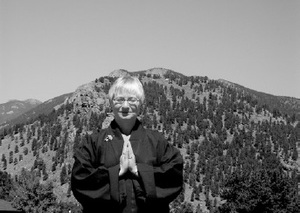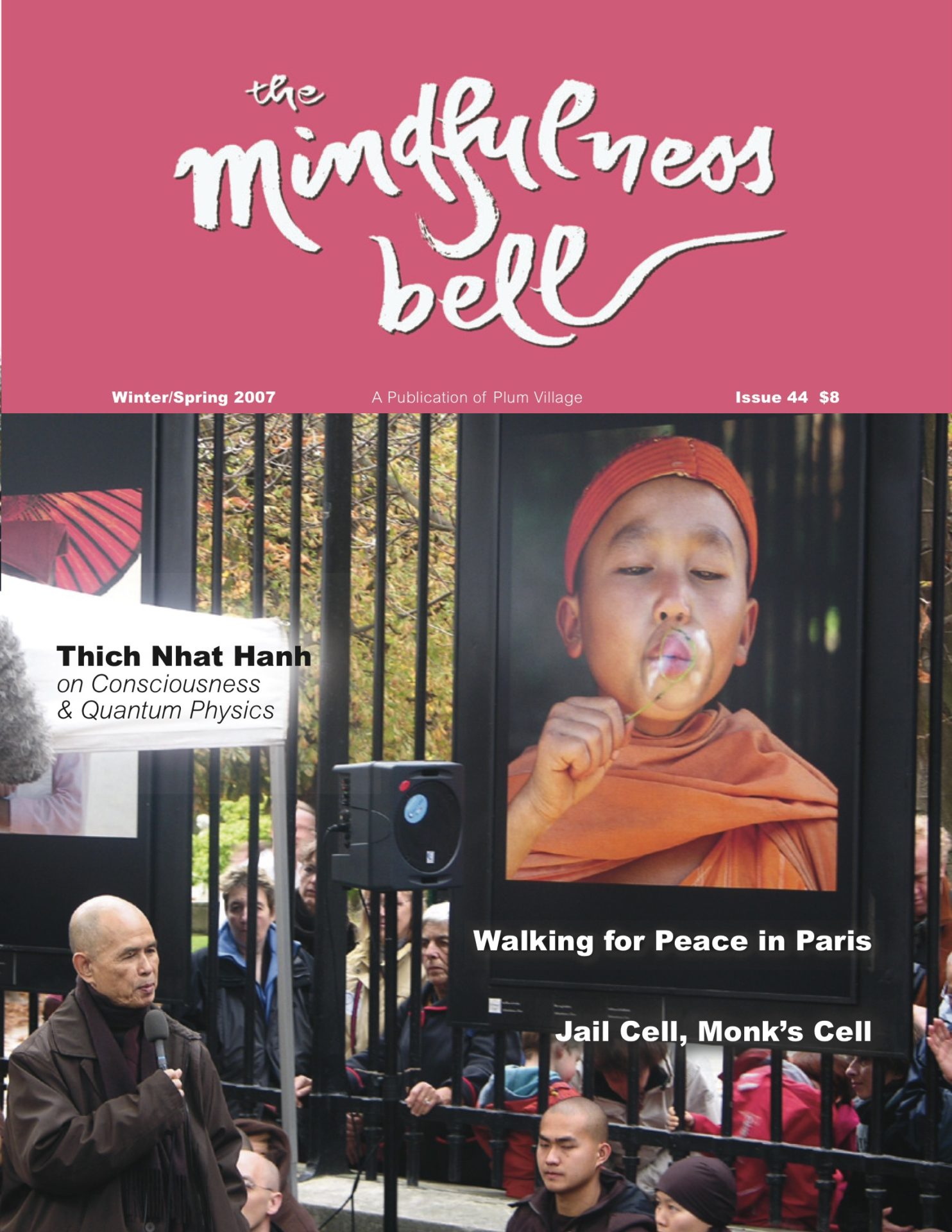
By Sandra S. Murray
A few years ago, anxiety was beginning to dominate my waking, and sleeping, world. I have a personality that pays great attention to detail, checks everything at least twice, tries to anticipate problems and solve them before they occur, organizes everything for efficiency, works to deadlines. These are great skills for an editor and proofreader, which is how I have earned a living for many years,

By Sandra S. Murray
A few years ago, anxiety was beginning to dominate my waking, and sleeping, world. I have a personality that pays great attention to detail, checks everything at least twice, tries to anticipate problems and solve them before they occur, organizes everything for efficiency, works to deadlines. These are great skills for an editor and proofreader, which is how I have earned a living for many years, or for anyone working in a business environment in our Western culture. However, when these methods of approaching the world began to rule my personal life also, when they applied themselves to me rather than me applying them skillfully to the task at hand, I could see I had a problem. Eventually, even I knew I was acting crazy, and not just irritating my friends and husband. But how to stop?
I would wake up at night from a bad dream or just wake up anxious. I would get up, go to the bathroom, get a drink of water, read. During the day I would check my workstation three or four times when I left, sometimes re-climbing the stairs from the entry. I was especially concerned about fire—stoves, candles, matches, hot light bulbs. Sometimes during the day a thought would start that something bad was going to happen, and that it would be my fault. These feelings compounded as I tried to hide them from others, fearing people would become impatient with me or mock me. Not only was I afraid, I felt wrong in being afraid. And I feared that no one would understand.
I sought professional help, and my naturopathic physician was most concerned about the sleep deprivation, which was part of my menopause process. We were able to improve the amount and quality of my sleep. The symptoms diminished. But they did not disappear, and on occasion would surface dramatically.
Time to Really Wake Up
One night this past year, I woke from sleep about 3:00 a.m., my heart pounding and racing. I remembered a gatha from Robert Aitken-roshi’s book, The Dragon Who Never Sleeps:
When wakeful at two in the morning I vow with all beings to light incense and sit upon my cushion— it’s time that I really wake up.
So this time, instead of turning on a light and reading, I practiced walking meditation for almost a half hour. Walking with my anxiety reminded me of Thây’s advice to care for our strong emotions like a precious baby—and when I was an infant, my mother walked me for hours to get me to sleep! When I felt stable enough, I stood behind my cushion and practiced touching the earth. Standing, I felt the strength of my body as a tree trunk, solid; bowing down, I released my anxiousness to the earth for care. Standing, I breathed in deeply the peace and quiet of the night; bowing down, I rested against the ground in surrender.
When at last I felt some calmness in my body and knew I could sit with my fears, I took to my cushion. Breathing in and out, I could feel my heart and belly still slightly trembling. For the first time, rather than pushing these feelings away and disowning them (“What do you have to be anxious about? Quit acting so fearful!”), I turned my gaze inward in compassion and just said to myself, “It’s very hard to feel so scared. I have lived this way for a long time. I won’t leave you alone feeling so bad.”
After a little while of sitting and being present with the feeling of fear, I looked closely at how the fear actually felt in my body: the faster heart, the tight stomach, the longing to cry in my throat. With focused attention I breathed more deeply and slowly into my belly, and consciously relaxed my stomach and throat. As my body calmed, my mind calmed also. Finally, I could just rest quietly in meditation, at ease with my body and mind. When I returned to bed, I slept well.
This experience demonstrated to me the power of our mindfulness practice, and it showed me once again how Thây’s teachings can help me with these foggy fears that are shapeless and pervading. In other meditation sessions, I looked deeply at how I fed these fears: with stimulants like coffee and TV crime shows; with contributing emotions like suppressed anger and self-induced pressure to be perfect; with my own self-judgment.
The process is not over—is it ever? I still have anxious times, although fewer than before. One big difference is that I know how to help myself when I feel these feelings. I am more open with my sangha about my imperfections, and my sangha’s patience, humor, and acceptance support me. I can even ask, “Am I worrying too much?” and my dharma sister will say, “Yes,” or “No,” and that helps me.
Tips for Overcoming Anxiety
Anxiety seems to pervade our society, from vague free-floating fears to a concerned reaction to current events. If you know someone with a lot of anxiety, or if you sometimes feel this way, maybe my experience will help. These are guidelines that I’m working with now:
- I do not try to work with these fears rationally, because they are not rational in For someone to say, “Well, did you unplug the toaster?” and for me to say, “Yes, I did,” does not make the anxiety go away.
- Make sure I rest. Go to bed at a good hour. If I can’t sleep at night, then I try to take a nap during the day or use deep relaxation to care for myself.
- I focus on the physical level first, practicing walking meditation, touching the earth, tai chi, chi gong, yoga, or mindful Activity performed with focus and coordinated breathing helps calm my body, and my mind follows.
- I look into the nutriments that are feeding the I make better choices.
- I do not malign or reject myself for feeling I accept myself as a sensitive person who detects imbalance in my life through this mental formation as well as others.
- I water the good seeds by regular practice at home and with sangha.
Sandra S. Murray, True Mountain of Light, is a founding member of Flowing Mountains Sangha in Helena, Montana. She is happily writing a novel, short pieces of nonfiction, and poetry.

